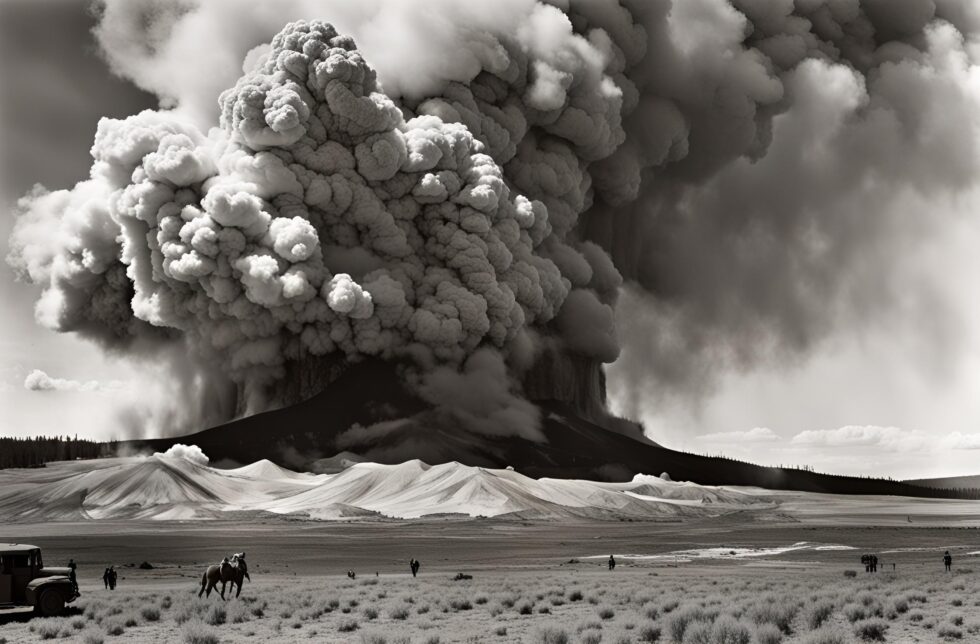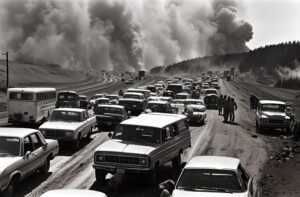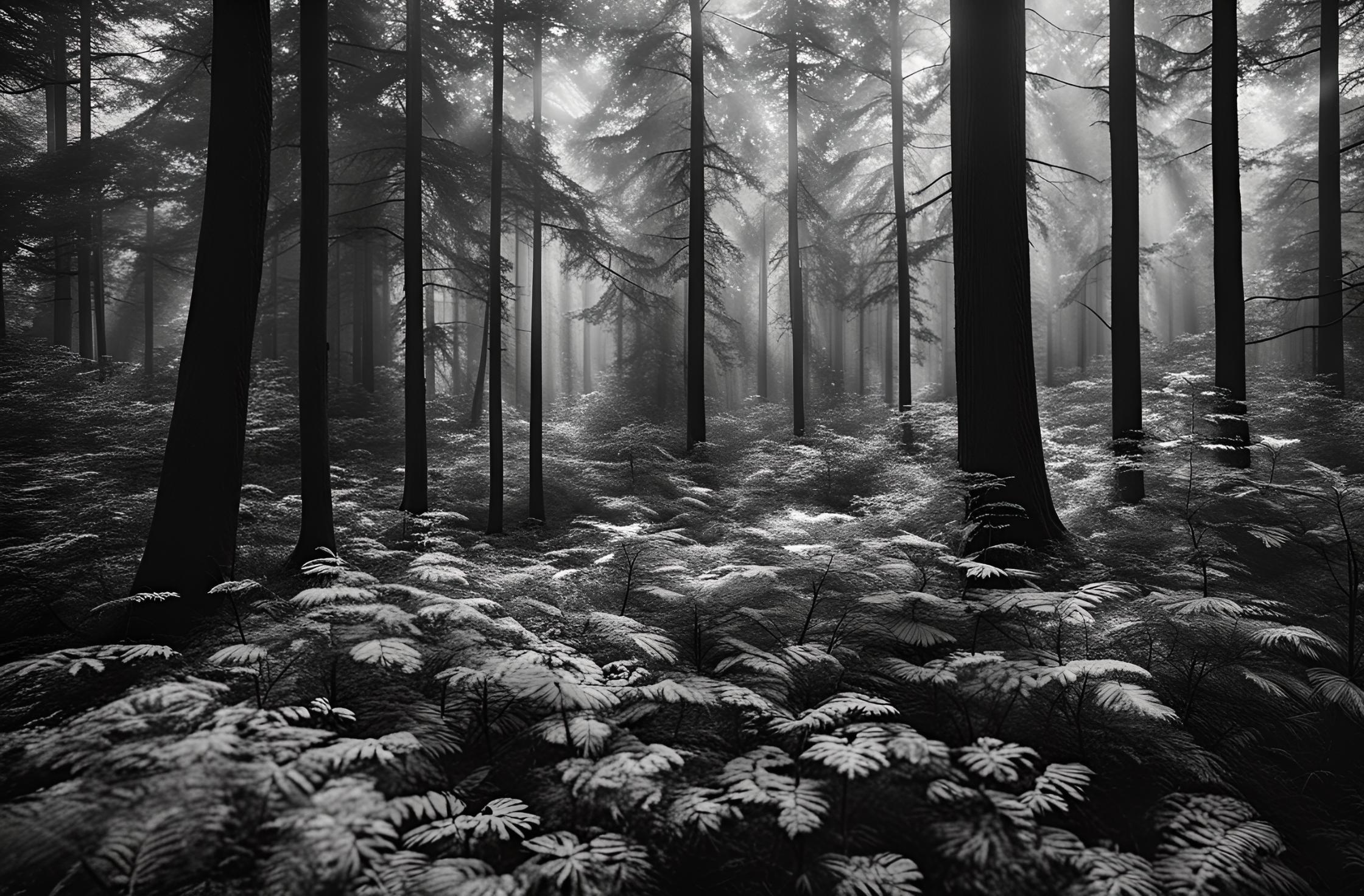
In the early hours of a crisp autumn morning, the world was forever changed. The Yellowstone Caldera, a sleeping giant beneath the serene landscapes of Wyoming, erupted with a fury that had been brewing for millennia. The initial explosion was heard as far away as New York, a deafening roar that signaled the beginning of a new era for humanity.
The immediate aftermath was catastrophic. Ash and pumice rained down upon the surrounding states, burying entire cities under a thick, suffocating blanket. The sky turned an ominous shade of gray, blocking out the sun and plunging the continent into a premature twilight. The ash cloud spread rapidly, carried by the jet stream, reaching Europe within days and encircling the globe within weeks. The world was plunged into a volcanic winter, with temperatures dropping dramatically and crops failing across the globe.

In the chaos that followed, governments struggled to maintain order. The United States, the epicenter of the disaster, declared a state of emergency and mobilized the National Guard to assist with evacuations and distribute supplies. But the scale of the disaster was unprecedented, and the nation’s infrastructure buckled under the strain. Highways were clogged with desperate families fleeing the ashfall, and airports were overwhelmed with people trying to escape by air. The once-mighty superpower was brought to its knees, its cities ghostly and abandoned, its people scattered and struggling to survive.
As the weeks turned into months, the true extent of the eruption’s impact became clear. The global climate had been altered, with temperatures plummeting and sunlight scarce. Crops withered in the fields, and food shortages became a grim reality. In the face of this new world, humanity was forced to adapt. Communities banded together, sharing resources and knowledge to survive the harsh conditions. In the absence of modern conveniences, people returned to ancient practices, growing food in greenhouses and using geothermal energy to heat their homes.

In the midst of the darkness, a new sense of unity emerged. The disaster had shown the fragility of human civilization, and people from all walks of life came together to rebuild. Scientists and engineers worked tirelessly to develop new technologies to mitigate the effects of the volcanic winter. They created innovative methods to grow food indoors, harnessing artificial light and hydroponic systems to sustain crops. Engineers designed new forms of energy production, tapping into the Earth’s geothermal heat to provide power and warmth.
As the years passed, the world slowly began to recover. The ash clouds dissipated, and the sun once again broke through the gloom. The global temperature began to rise, and the seasons returned to their natural rhythm. But the world that emerged from the shadow of the eruption was forever changed. The lessons learned during the dark years had left an indelible mark on humanity. People had come to understand the importance of cooperation and resilience, and a new era of global unity and innovation dawned.
In the aftermath of the eruption, the scientific community experienced a renaissance. Researchers from around the world collaborated on projects to better understand the Earth’s geology and climate. They developed advanced monitoring systems to predict future volcanic activity and mitigate its effects. The eruption had served as a stark reminder of the planet’s power, and humanity was determined to be better prepared for whatever challenges lay ahead.
The eruption of the Yellowstone Caldera had been a cataclysmic event, but it had also sparked a transformation. The human race emerged stronger, more united, and more aware of its place in the natural world. The scars of the disaster remained, but they served as a testament to humanity’s resilience and ingenuity. The world had been forever changed, but in the face of adversity, humanity had found a way to not only survive but thrive.




